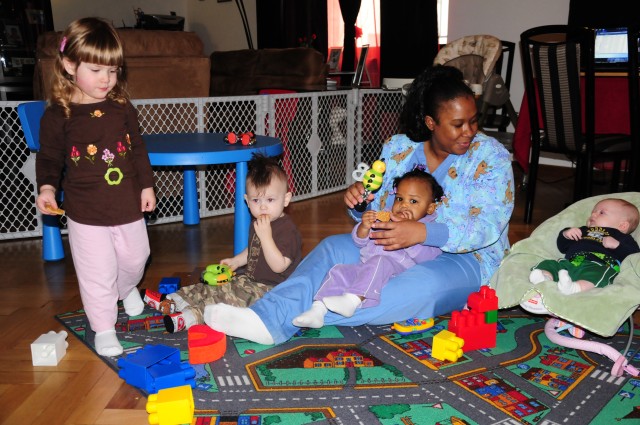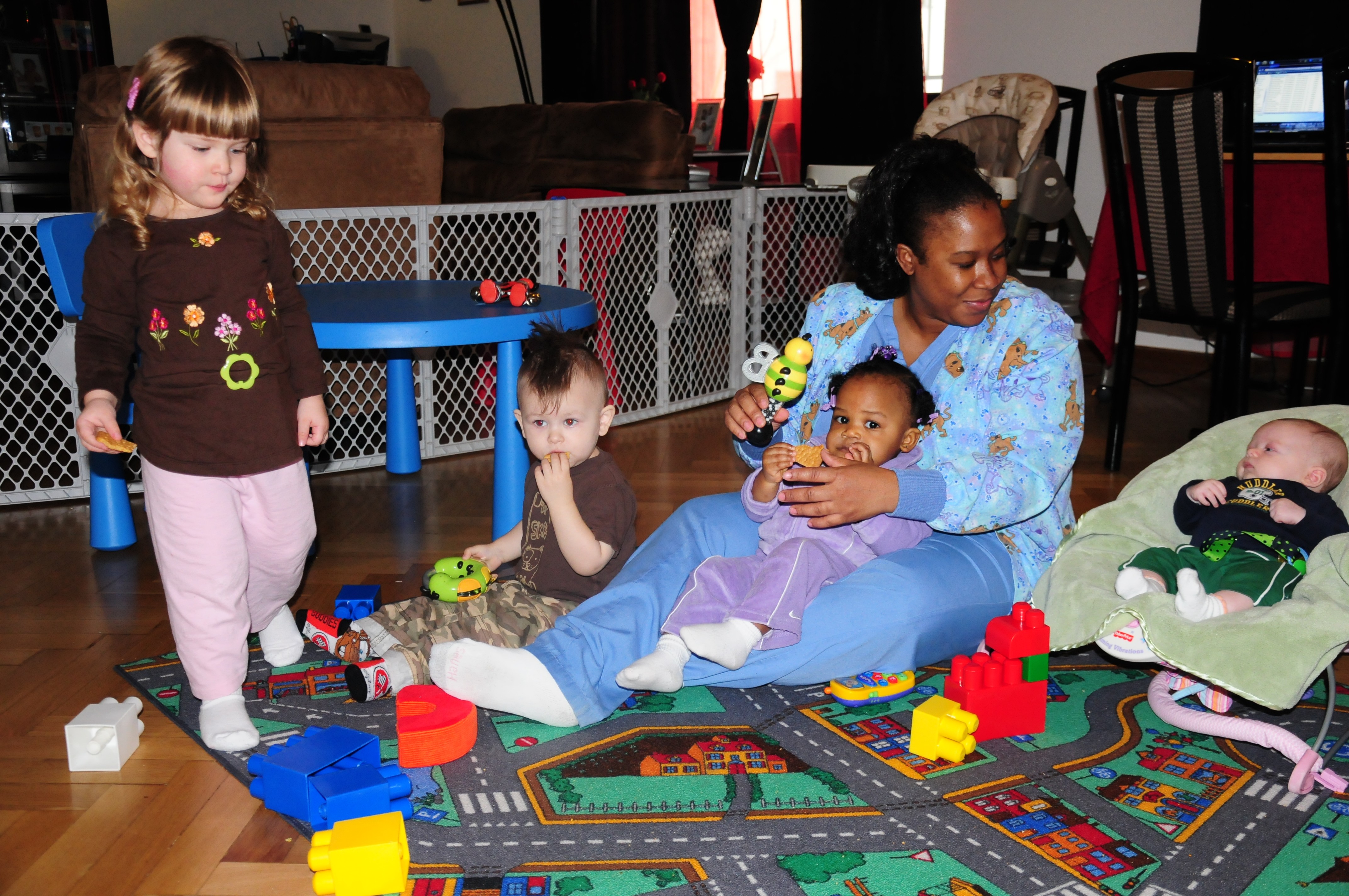
HEIDELBERG, Germany -Finding the appropriate day care program for your child can be a challenge sometimes, but people who are interested in providing child care, can also face the difficulty of deciding which childcare they want to provide.
Through Child, Youth and School Services, the U.S. Army offers several opportunities, depending on the families' needs and preferences.
Family Child Care is a program where your child experiences a home away from home.
"The greatest advantage to FCC is the small group," said Merenda Haynes, FCC director at U.S. Army Garrison Heidelberg's CYSS. "It is siblings being able to stay together; it is having one care giver instead of multiple."
The FCC program is provided by military family members or civilians working as independent contractors in individual housing units located on the Heidelberg installations.
"To qualify, we do background checks on everybody in the family over the age of 12," Haynes said.
"They have a physical ... and there is a home visit that I conduct with the whole family," she said. "I do a home interview with everyone in the family - the potential provider and the children of school age have questions to answer."
FCC providers and their homes meet specific requirements related to health, fire prevention, safety, and child development programming and are certified by the installation commander after all requirements are met.
Before a person gets certified, they have to take two training sections, covering the basic CYS training and specific FCC training.
They start to set up their homes, which are regularly visited and inspected by FCC, CYSS, and installation representatives.
"We make sure that (the home) is child proof, child friendly and the appropriate items are in there." Haynes said.
At the Heidelberg FCC office, the director and a training and curriculum specialist help the providers to set up their home.
"Through the whole thing we hold their hand as much as they want their hand held. Some are very independent," Haynes said.
According to Haynes, FCC has a lending closet with books, toys, baby beds, high chairs, and other items a provider needs for the children.
Also a resource library with professional books is available.
FCC provider training is ongoing, Haynes said.
After the orientation training to open, an 18-month pre-described training needs to be completed, which is followed by the annual training plan, according to Haynes.
Providers can also choose to do the Child Development Associate Credential, or the National Association of Family Child Care Accreditation, which are both subsidized by the U.S. Army.
"The Army is really doing everything they can to insure these people become professionals," Haynes said.
There are a lot of requirements that have to be met and the inspections are not easy.
"So much of it is just like the Child Development Center - the diaper changing routine, the cleaning routine - all that is the very same as the CDC," Haynes said.
"...It is not baby-sitting, they are childcare professionals."
"I chose to be an FCC provider for two reasons: I have a 14-month old daughter and while being in Germany, I have no family here and I don't know many people," said Andrea Richardson, FCC provider within the Heidelberg community.
"I thought 'well, people need good folks to watch their children and my daughter needs friends to play and learn with, so why not do both: give her someone to grow up with and I can meet new people and maybe even make new friends of my own.'"
Caring for five children between eight weeks and three years old, Richardson has developed her own weekly plan, which is based on various activities and games like storytelling, different kinds of plays, the use of different toys, and free play.
"My day care is called Big Imaginations, because as we know, children have such imaginations and should be able to explore and try new things," Richardson said.
According to Haynes, the appropriate FCC provider has to be independent, has to enjoy children, wants to make difference, and has to be self-motivated.
"I plan daily activities so that the children in my care can engage in social development and emotional cognitive skills," said Gail Martin, who has been providing childcare within the Heidelberg community for almost six years.
Martin has also earned her CDA Credential and her NAFCC Accreditation. Currently, she is caring for four 3-year-old children.
"I love working with children," Martin said.
"It has given me the opportunity to stay home and take care of my own children."
Children have to be enrolled with CYSS and the fees are the same as for the CDC.
Once the parent receives the providers' names, they meet for an interview and the provider can choose the children that they want to take.
The limit is six children according to the amount of space at the provider's home.
The caregiver almost becomes like an extended family member and the other children become the cousins that they don't have here in Germany, Haynes said.
"I have already developed relationships with most of my parents, I enjoy watching their children and it makes me feel so good that they know their child is in good hands," Richardson said. "If you are thinking of going into the childcare business, just think of all the people you would help out; we are in such a need of good and trustworthy people to join our team."
Richardson and Martin agree that the most important thing about their job is to "have lots of love and patience for children."
Editor's note: This is the first story in a two-part series on Army child care.

Social Sharing